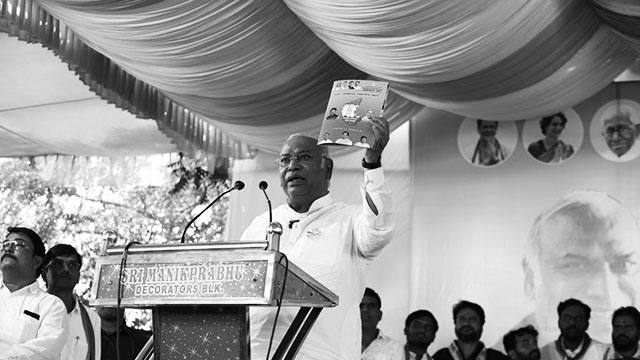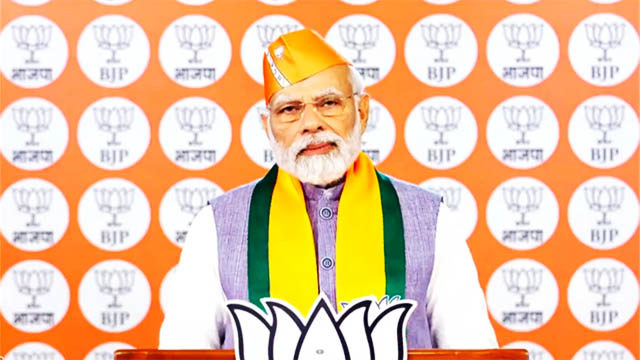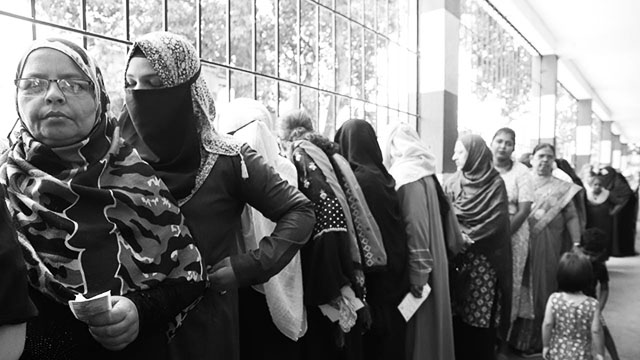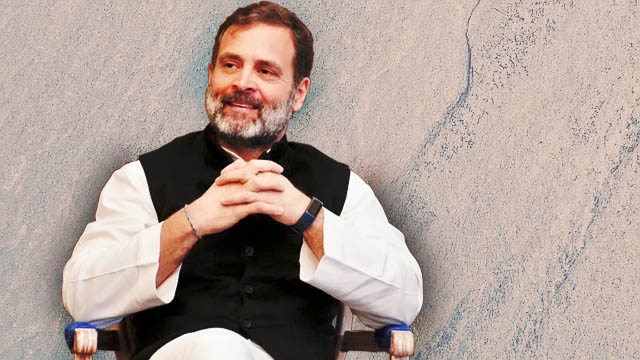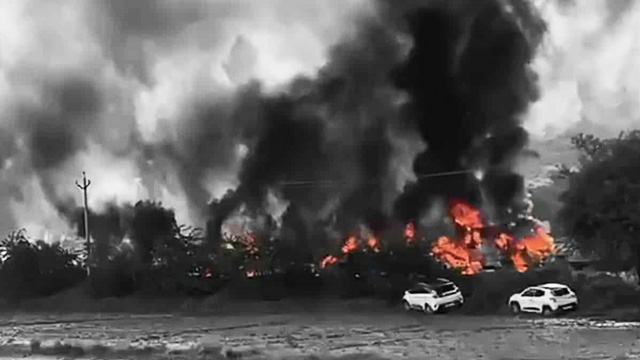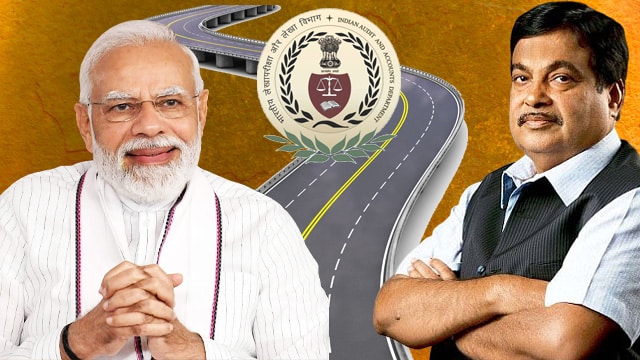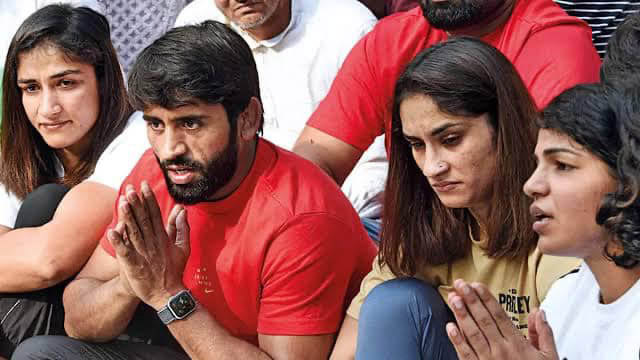The Indian National Congress (INC) released its manifesto for the Karnataka Assembly elections on Tuesday, May 2nd. The INC manifesto for Karnataka polls promises a wide range of schemes to support farmers, gig workers, women, and unemployed people.
The INC manifesto for Karnataka polls also promised that it will repeal the “anti-people and unjust laws” enacted by the incumbent Bharatiya Janata Party (BJP) government in the state. The INC manifesto also promised to act against growing hate crimes in the state if elected to power.
The INC manifesto for Karnataka polls
The INC manifesto for Karnataka polls is named “Sarva Janangada Shanthiya Thota” in Kannada, which means ‘peaceful garden for all communities”. It made a lot of promises to the electorates of the state, which will go to polls this month.
The INC manifesto was released by party chief Mallikarjun Kharge, who was joined by the state party chief DK Shivakumar and legislative party (CLP) chief and former chief minister Siddaramaiah.
It has a wide range of promises that the party promises to implement within a year of forming government in the state. It also reiterates the five guarantees it has provided to the voters, vis Gruha Jyothi (electricity), Gruha Lakshmi (Rs 2,000 per month to women heads of families), Anna Bhagya (food grains to families below the poverty line), Yuvanidhi (unemployment support) and Shakti (free bus travel for women in state buses).
The INC manifesto on agriculture and farmers’ welfare
The INC manifesto for Karnataka polls has promised to invest Rs 1.5 trillion over the next five years to complete the pending irrigation projects in the state. It also promised that the INC-led government will invest Rs 1.5 trillion for the modernisation of agriculture and Rs 500bn to develop rural infrastructure.
On the minimum support price (MSP) for agricultural products, the INC manifesto promises that the MSP will be based on the Agriculture Price Commission’s recommendation.
The manifesto has stressed on dairy and fisheries sectors. It has promised that under the Ksheera Kranti scheme, an INC-led government will target producing 15m litres of milk daily while increasing the financial incentive for the dairy farmers from Rs 5 to Rs 7 per litre.
The INC manifesto for Karnataka polls also promised to invest Rs 120bn to improve the fisheries sector under the Matsya Kranthi scheme.
The manifesto promised that all “anti-farmer” laws passed by the BJP government will be repealed and the “politically-motivated” cases against the farmers will be withdrawn after the party comes to power.
On hate crime and communalism
The INC manifesto for Karnataka polls promised to take firm actions against perpetrators of hate crimes and those who incite communal violence in the southern state known for its intense religious polarisation.
“Firm action would be taken against individuals and organisations that spread hatred among communities on the basis of caste and community. Congress believes law is sacrosanct, and they cannot be violated by Bajrang Dal and PFI (sic)”, the INC manifesto said referring to the Vishwa Hindu Parishad’s (VHP) youth wing Bajrang Dal and the proscribed Popular Front of India (PFI).
The INC promised in its manifesto to allocate Rs 100bn for the welfare of the minorities and the preservation of the places of worship. There have been reports of attacks by right-wing Hindutva organisations on places of worship belonging to the minority Christians and Muslims in the state.
On social justice and reservation
The INC manifesto for Karnataka polls promised to restore the 4% reservation for minority Muslims scrapped by the BJP government. It also promised an increase in the reservation matrix for the scheduled castes (SC), scheduled tribes (ST), and other backward castes (OBC) to 75%.
The party promised to implement the caste census report after coming to power, which the BJP has placed in oblivion. The INC manifesto also promised a 1% reservation for gender minorities in the police force.
The manifesto promised to set up separate welfare boards for gender minorities and ex-servicemen.
On labour front
The INC promised to repeal the amendments to the Factories Act by the BJP, which increased working hours from eight to 12. It promised to treat the transport workers at par with the government workers.
The INC manifesto for Karnataka polls promised to increase the salaries of the Anganwadi and Mini Anganwadi workers to 15,000 and Rs 10,000 per month, respectively. Police personnel who work night shifts will be given an extra allowance of Rs 5,000 per month along with their salaries, the INC manifesto promised.
It also promised to set up a Gig Workers’ Welfare Board for this growing section. It also promised to set up separate boards for auto rickshaw and taxi drivers. The INC also promised to raise the minimum wages for the state’s marginalised garment workers.
The party also promised to fill up all posts in the state government that are lying vacant after coming to power to ensure the growth of employment opportunities.
The INC had formed a government in alliance with the Janata Dal (Secular) [JDS] following the 2018 Karnataka Assembly elections. However, the BJP managed to wean away many legislators from the INC and the JDS in 2019 and toppled the alliance government. The INC has been in opposition since then. Earlier, the party had ruled the state under Siddaramaiah between 2013 and 2018.
As the poll approaches, the INC and the incumbent BJP have locked horns. The BJP’s manifesto has emphasised the far-right Hindutva camp’s agendas, including the implementation of a uniform civil code for all communities, implementation of the National Register of Citizens (NRC) in the state per the Citizenship (Amendment) Act 2003 (CAA 2003) to deport “illegal migrants”, and to set up a special police wing to suppress Islamic radicalism.

